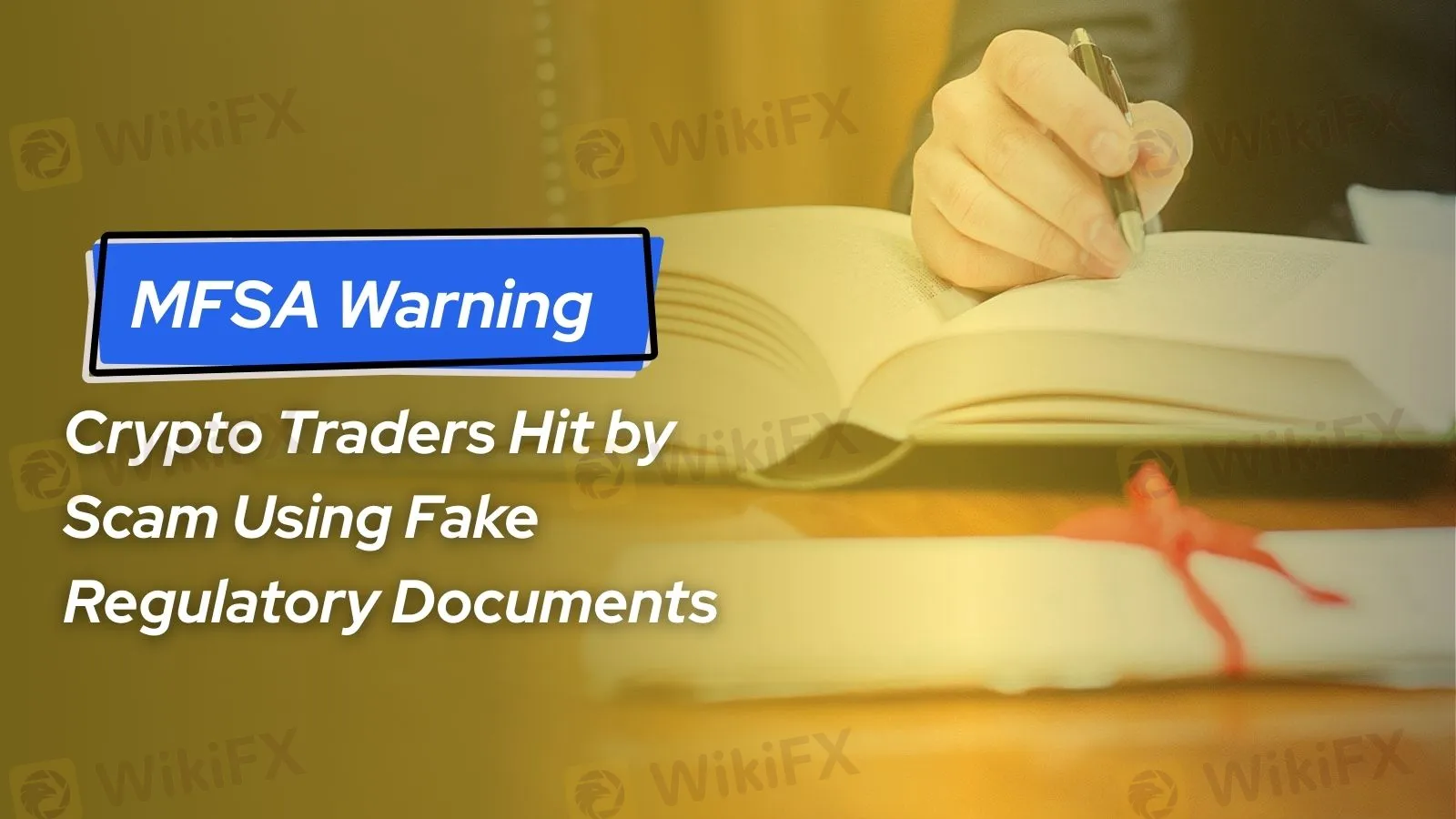简体中文
繁體中文
English
Pусский
日本語
ภาษาไทย
Tiếng Việt
Bahasa Indonesia
Español
हिन्दी
Filippiiniläinen
Français
Deutsch
Português
Türkçe
한국어
العربية
Crypto Traders Hit by Scam Using Fake Regulatory Documents, MFSA Cautions
Abstract:Fraudsters are using MFSA-branded fake documents to scam crypto users, as impersonation of regulators rises globally and document-based scams grow increasingly sophisticated.

Scammers Pose as MFSA Officials to Demand False Fines
A new crypto-related scam has emerged in Malta, targeting digital asset traders with fraudulent documents impersonating the Malta Financial Services Authority (MFSA). The forged letters claim that recipients have committed market manipulation—particularly involving Bitcoin and Ethereum—and must pay regulatory fines.
These fake notices mimic the MFSAs branding, including its logo, formatting, and official signature style. According to the regulator, the documents are entirely false, and the MFSA has issued a public warning urging the public to stay alert. The scam leverages institutional credibility to pressure victims into making payments, often using threats of legal consequences or urgent deadlines to reduce scrutiny.
Other Jurisdictions Report Similar Impersonation Schemes
Maltas warning follows a broader global pattern of scammers using forged government credentials to extract funds from unsuspecting individuals. In the United States, the Commodity Futures Trading Commission (CFTC) previously reported emails falsely accusing crypto users of tax fraud, allegedly sent by its enforcement division. In the UK, the Financial Conduct Authority (FCA) flagged incidents where individuals posed as FCA investigators demanding access to private wallets under the guise of compliance checks.
These impersonation efforts are growing more refined, often using real official names and structures to deceive victims. The tactics show an evolution from typical phishing attempts toward more credible, document-based fraud—making it harder for investors to distinguish scams from legitimate notices.
Investors Urged to Verify and Report Suspicious Communications
In light of the rising threat, the MFSA strongly advises users to verify any correspondence that appears to come from a financial authority. Genuine enforcement actions are not delivered through unofficial emails, nor do they demand immediate payment without proper legal procedure. Individuals are encouraged to cross-check company or enforcement notices using the MFSAs official website or contact lines.
Furthermore, suspicious messages should be reported directly to the MFSAs Financial Crime Compliance Unit. Tools like public regulator databases and verified contact portals remain essential in filtering out fraudulent outreach.
Disclaimer:
The views in this article only represent the author's personal views, and do not constitute investment advice on this platform. This platform does not guarantee the accuracy, completeness and timeliness of the information in the article, and will not be liable for any loss caused by the use of or reliance on the information in the article.
Read more

Breaking News: OmegaPro Caught in a $650 Million Forex and Crypto Investment Scam
An indictment was leveled against two men in the District of Puerto Rico for their alleged involvement in the operation and promotion of OmegaPro, an international investment scheme that has led to financial losses worth over $650 million for investors. Check more about this story

5 Reasons: Microtrade Is a Red Alert
Is MicroTrade a scam or is it safe? This is a common question for many who are looking to invest or trade. Check out this article and you’ll see it is an investment scam

No License, No Security: CNMV Issues List of 10 Illegal Firms
Spain's financial watchdog, the National Securities Market Commission (Comisión Nacional del Mercado de Valores, CNMV), has issued warnings against 10 unlicensed forex brokers operating without proper authorization.

RM71,000 Lost in a Share Scheme That Never Existed
A 40-year-old engineer from Malaysia lost RM71,000 after falling for a fake investment scheme advertised on Facebook.
WikiFX Broker
Latest News
Global stock markets are calling Trump's bluff on tariffs
Trump's tariffs overshadow the pomp and pageantry as Macron meets King Charles
Boeing delivers most airplanes since late 2023 after ramping up 737 Max output
Inflation expectations drift back down to pre-tariff levels, New York Fed survey shows
MT4 vs MT5: A comprehensive comparison in terms of functionality
Top Forex Trading Strategies for the London Session
Swissquote Takes Full Control of Yuh Digital Finance App in Major Deal
Top 5 Forex Pairs Every Trader Should Have on Their Radar
What WikiFX Found When It Looked Into Decode Global
Treasury yields rise as Trump's new tariff rates in focus
Currency Calculator


